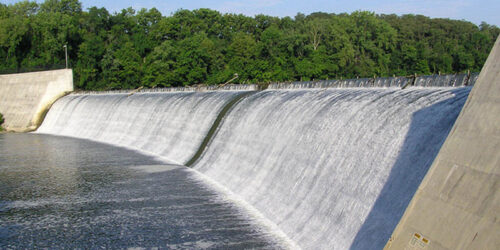Lahore Chamber of Commerce and Industry (LCCI) president Mian Tariq Misbah has welcomed the execution of renewable energy projects under the China-Pakistan Economic Corridor (CPEC) and said that the hydel power projects were necessary to cope with the future energy and water challenges.
“The CPEC has brought renewable energy projects and improvement of the transmission system. These are good for fulfilling energy needs of the country, but we should go for [the] construction of more dams for water storage for irrigation and generation of cheaper electricity,” he said.
The high cost of energy had caused considerable increase in the input cost and hydel power generation was the only solution.
Talking to BOL News, Misbah underlined the need for the timely completion of Diamer-Basha and Mohmand dams and the construction of more reservoirs, saying such projects were necessary not only for cheaper electricity but also for avoiding floods and providing enough water for irrigation purposes.
He highlighted various issues, challenges for the economy and possible measures for increasing production and exports during the brief discussion with this correspondent.
The LCCI president said a lot needed to be done for the ease of doing business. “The government should minimise interference in departments. An inspector-less regime is still a distant dream. Clubbing of different taxes and reducing frequency of filing returns is necessary for the ease of doing business,” he said, adding that undue government interference was rubbing salt into the wounds of the business community, which is already under stress due to high input costs in the wake of considerable rise in electricity and gas tariffs, higher freight charges and uncertain exchange rate.
The government is focusing on large-scale manufacturing (LSM) with little or no attention to small and medium enterprises and cottage industry.
“Yes, the LSM sector has flourished even during the pandemic. The diversion of import orders due to the severe pandemic situation in Bangladesh and India and special packages for [the] export-oriented sectors have given a boost to the LSM. It is good for the economy,” he said.
Similar support should be given to the SMEs and the cottage industry for the long-term and sustainable growth of the economy, Misbah said, adding that the SMEs and cottage industry had always been the backbone of the economies of developed countries.
Even the Indian economy had flourished due to growth of SMEs, he said and suggested taking trade bodies of various sectors onboard, while devising the SME Policy, he added.
The LCCI president welcomed the initiative of providing collateral-free loans of up to Rs10 million to small industries. He; however, said the cottage industry and not the SMEs would be beneficiary of this scheme.
Misbah suggested an increase in the amount of collateral-free loans to facilitate SMEs.
To a question about the government’s initiative of setting up point of sales at retail outlets, he said, the move would not yield desired results. Instead of setting up POS and passing on the cost of bills to the customers, he said, the government should have imposed fixed tax on small businesses that would definitely help in more revenue generation.
“Yes, inflation is a big issue. But it is a global phenomenon due to the pandemic,” Misbah said, adding that the prices of all edible and agricultural inputs have increased considerably. “The government should intervene to provide relief to the poverty-stricken people. Targeted subsidy was the only solution to the prevailing problem. The Kissan Card is a good step. Introduction of the ration card system and strict enforcement of the rate list could help control inflation,” he added.





